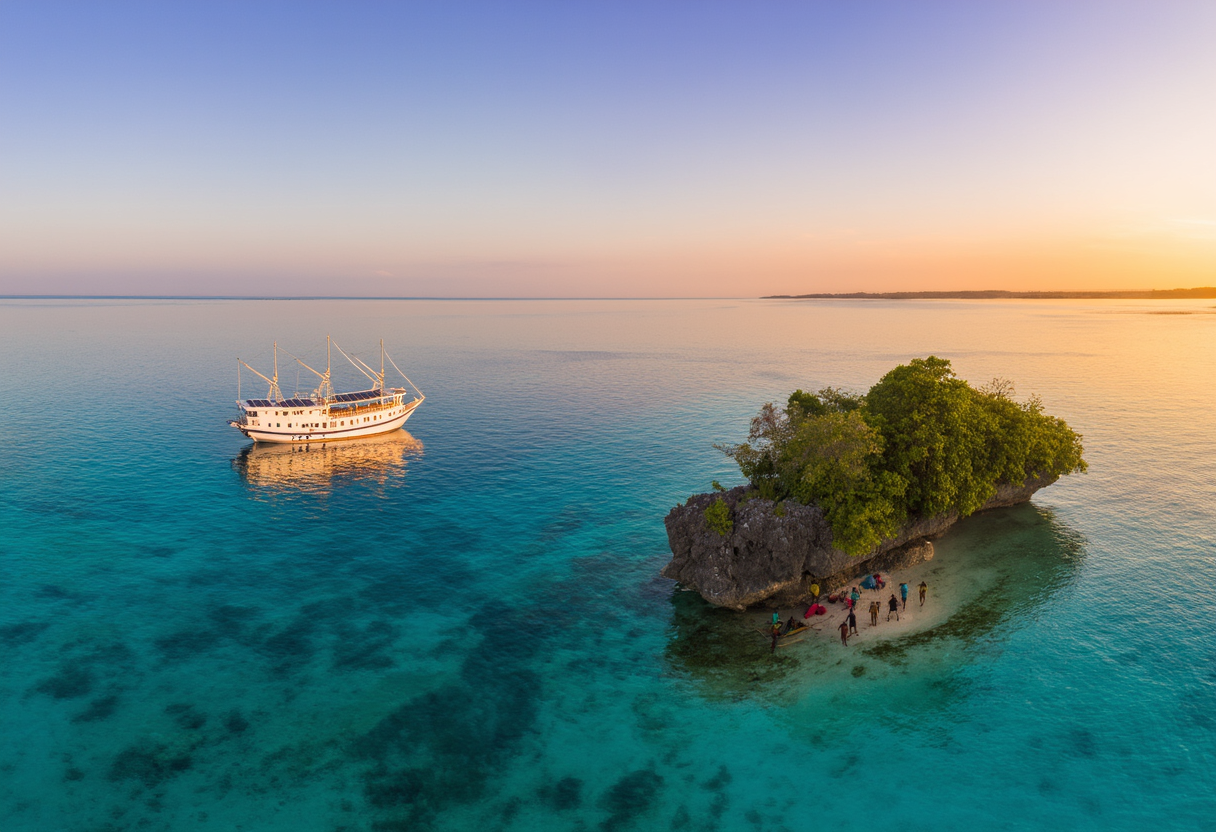Cruise Tourism: Sustainable Travels in a Changing World
As the world embraces sustainable tourism, cruise tourism is adapting to meet this demand. This article delves into how the cruise industry is redefining its operations to ensure eco-friendliness, contributing positively to local cultures while navigating the new normal of travel. Discover the changes shaping this sector as it embraces a sustainable approach.
The Shift Towards Sustainability in Cruise Tourism
Cruise tourism has made remarkable strides as it pivots towards sustainability. With an increasing number of travelers prioritizing eco-friendly options, the cruise industry is responding by integrating sustainable practices into their operations. This encompasses everything from utilizing cleaner energy sources, like LNG fuel, to emphasizing waste reduction strategies. Modern cruise lines are now more mindful of their environmental footprints, implementing measures that preserve the delicate ecosystems they visit. Therefore, travelers can enjoy their itineraries while ensuring that their adventures leave minimal impact on the destinations. In this context, cruise tourism evolves to meet contemporary ethical expectations, providing a roadmap for sustainable travel as a whole.
Enhancing Passenger Experience with Sustainable Practices
The evolution of cruise tourism doesn’t merely focus on the environment; it also enhances the passenger experience. Modern cruisers are increasingly seeking educational opportunities that allow them to engage with environmental issues firsthand. Many cruise lines offer programs featuring local conservation efforts and wildlife interactions, catering to the growing eco-conscious traveler segment. Such initiatives not only inform passengers about surrounding ecosystems but also empower them to contribute positively. Thus, the fusion of leisure and learning within cruise tourism allows for a more enriching experience. Therefore, the contemporary cruise journey transcends beyond mere transportation—it includes personal growth and meaningful connections to nature.
The Cultural Impacts of Responsible Cruise Tourism
In an era of global travel, cruise tourism fosters cultural appreciation, particularly through responsible practices. Interactions between passengers and local communities can promote understanding and respect when conducted ethically. Cruise lines are increasingly aware of their influence on the cultures they visit, taking steps to ensure that their impact is beneficial. By supporting local artisans and promoting authentic interactions, cruise tourism can bolster community economies without diluting cultural identities. Thus, responsible tourism practices help preserve the essence of local cultures while creating lasting memories for travelers. Overall, cruise tourism holds the potential to be a powerful vehicle for cultural exchange if conducted thoughtfully.
Challenges Facing Sustainable Cruise Tourism
Despite the positive momentum, cruise tourism encounters numerous challenges on its sustainability journey. The sheer scale of cruise ships presents inherent difficulties regarding waste management and fuel efficiency. Regulatory frameworks inadequately address these concerns, creating discrepancies in sustainable practices worldwide. Innovative technical solutions, alongside effective regulation, are essential for mitigating environmental impacts. Furthermore, the industry must navigate the complex landscape of consumer expectations, balancing affordability with eco-sensitivity. Thus, the future of cruise tourism relies heavily on collaboration among stakeholders to overcome these hurdles, ensuring that sustainability remains at the forefront.
Looking Beyond: Future Directions for Cruise Tourism
As cruise tourism adapts to changing traveler demographics, innovation will shape its trajectory moving forward. Enhanced technologies, such as AI and automation, promise to optimize operational efficiencies and customer service. Additionally, cruise operators are exploring unique itineraries to off-the-beaten-path destinations that showcase untouched environments. This pursuit for novelty coupled with sustainability will redefine the cruise tourism experience. As trust in the cruise sector rebuilds post-pandemic, addressing safety and health concerns transparently will be vital. In this dynamic landscape, the industry must remain agile to seize opportunities and mitigate risks.
Conclusion: Charting a Sustainable Course for Cruise Tourism
In conclusion, cruise tourism stands at a pivotal crossroads. As it embraces sustainability, the potential for positive economic, cultural, and environmental impacts grows. Responsible strategies will not only cater to modern traveler preferences but also preserve the integrity of the destinations visited. Collaboration among industry leaders, local communities, and passengers will be critical in achieving this vision. Therefore, as the cruise sector moves forward, prioritizing sustainable practices will ensure its relevance in the ever-evolving travel landscape. The possibilities ahead for cruise tourism are profound; learning from past experiences will illuminate the path forward.
